JG Summit Holdings, Inc., strengthens its efforts toward a more sustainable future by adopting a holistic approach to achieving long term business success which includes leadership in addressing environmental concerns and societal needs. The conglomerate has seen huge impact through the years with its strategy refresh and stronger focus on sustainability as a key enabler as highlighted in its 2021 Sustainability Report.
One of the largest and more diversified Filipino conglomerates, publicly listed JG Summit is the holding company for an array of businesses with substantial interests in food manufacturing and agro-industrial and commodities (Universal Robina Corp); real estate and hotel (Robinsons Land Corp); air transportation (Cebu Pacific Air); banking (Robinsons Bank); and petrochemicals (JG Summit Olefins Corp).
JG Summit Holdings President and CEO Lance Y. Gokongwei said amid the health crisis the conglomerate has accelerated its digital transformation, recalibrated its business strategies, strengthened its core businesses in food, real estate, petrochemicals and banking, and fast tracked its sustainability approach in order to rise above challenges and address the needs of its stakeholders.
“We looked at our ecosystem and synergies across the conglomerate and proactively embedded a strong emphasis on sustainability, leadership and people development – all these to address the ever-changing needs of our stakeholders and emerge as a stronger business post pandemic,” said Gokongwei. “We remain optimistic that we are well-positioned to thrive as we head into a more sustainable future,” he added.
In its recently released Sustainability report, JG Summit communicated its holistic Sustainability Agenda aligned with its purpose and core values as well as its priorities to support the United Nations Sustainable Development Goals (UNSDG) based on its identified five focus areas, namely: Climate Action, Resource Efficiency and Circularity, Employee Growth and Well-Being, Shared Success, and Better Choices.
The conglomerate also disclosed how its Sustainability Agenda is integrated in its five-year business strategy and expounded on its approach of fast-tracking this by citing examples of how it is proactively transforming its operations as it traverses the new normal.
Climate Action Agenda
To ensure top management level sponsorship of JG Summit’s sustainability agenda, the Corporate Governance and Sustainability Committee has been established that has oversight on the conglomerate’s Sustainability Performance. Additional noteworthy efforts are the integration of Climate and other Sustainability Risks in its Enterprise Risk Management and the roll out of workshops to build capability on Science-Based Targets.
For its efforts on Climate Action, JG Summit is expanding low-carbon operations and strengthening its climate-related risk management. It manages its greenhouse gases (GHGs) emissions not only through operational efficiency improvements but also through the adoption of renewable energy.
To date, RLC has installed rooftop solar panels in 24 of its Robinsons Malls, which are capable of generating 30.79 megawatts in total. In 2021, solar energy provided over 20% of its electricity requirements, preventing the release of over 18,887.47 tons of carbon dioxide into the atmosphere.
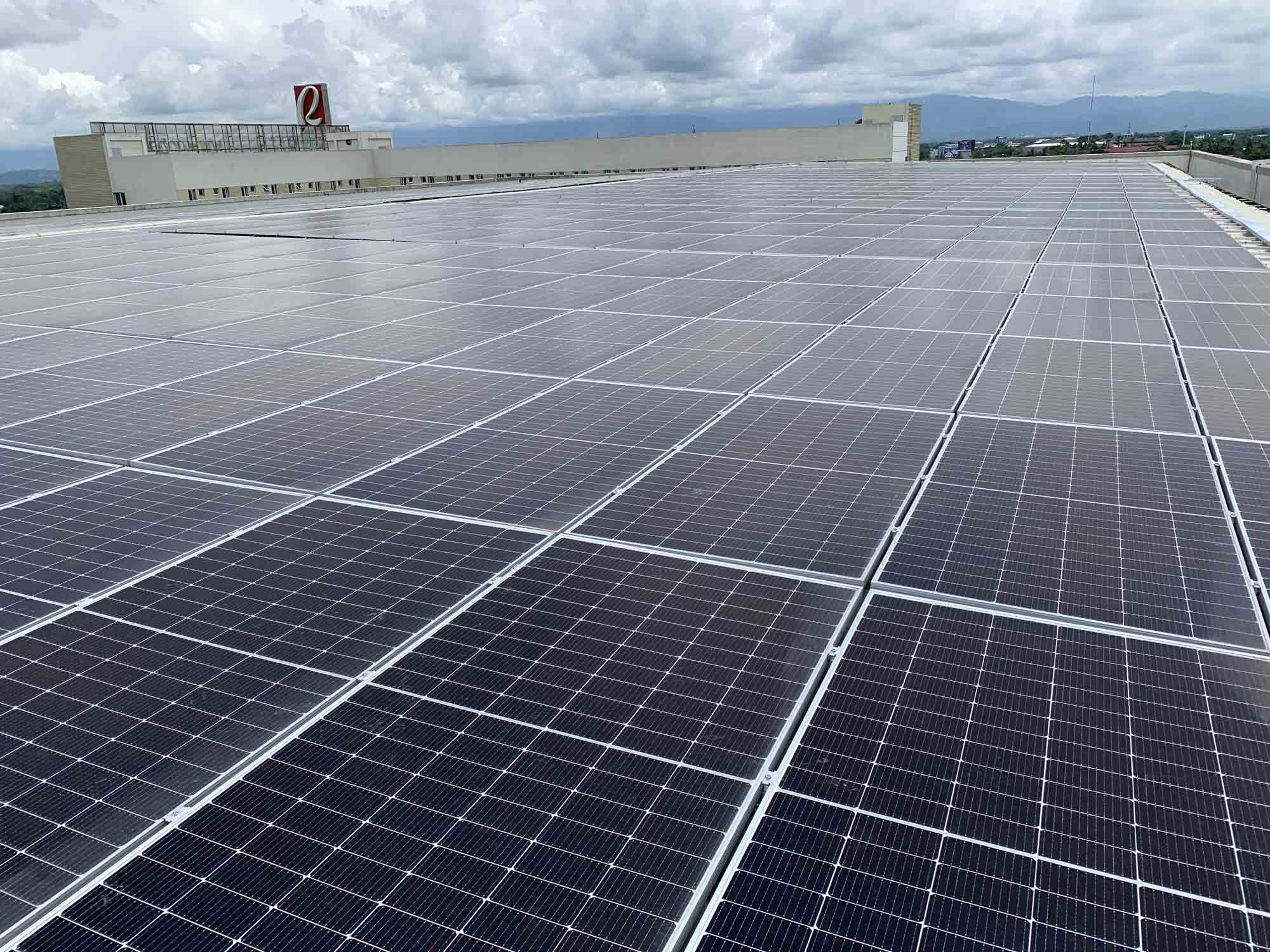
Similarly, URC’s Branded Consumer Food manufacturing plants in Canlubang and in Thailand boast onsite rooftop solar panels with a combined capacity of 7 megawatts, which generated 3,490.83 megawatts-hour of renewable energy in 2021.
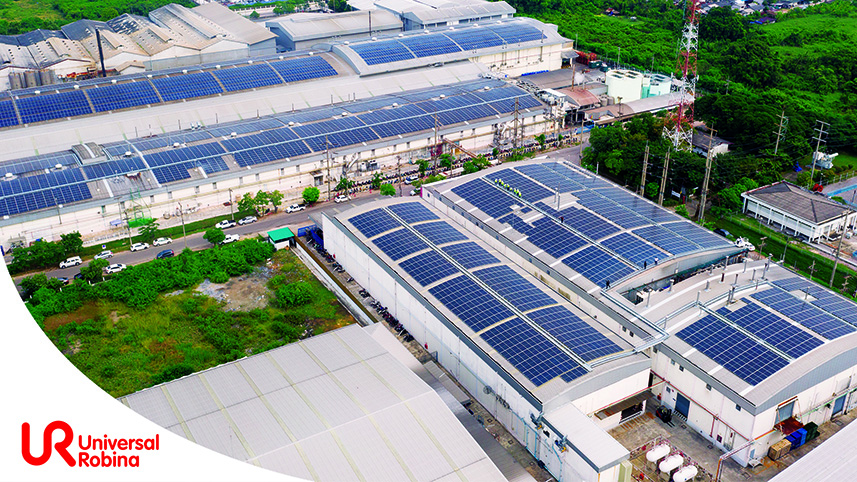
Meanwhile, its transportation unit, Cebu Pacific, is currently modernizing its fleet and improving fuel use by refleeting with Airbus A330neo (New Engine Option) aircraft which consumes 25% less fuel than previous generation aircraft.

Resource Efficiency and Circularity
JG Summit’s approach to Resource Efficiency and Circularity is to optimize the use of water and materials in its food manufacturing, air transport, petrochemicals, and other resource-heavy businesses. The conglomerate continues to find ways to lengthen the life cycle of its materials by finding options to re-use or recycle its food, plastic, and other resources.
High up in the agenda are plastic waste recovery and recycling initiatives, which are currently being set up with business units URC and RLC, together with affiliate Robinsons Supermarket, among others.
At URC, water conservation strategies were developed under the “Reduce, Reuse, Recycle Water” program. From switching to stainless steel pipes and fixing leaks to harvesting rainwater for reuse, these efforts led to the conservation of 11.5 million cubic meters of water from 2018 to 2021, as well as an improvement of the company’s Water Use Ratio by 49%.
Meanwhile, at its banking unit Robinsons Bank (RBank), the conglomerate has saved 13.5 metric tons of paper in 2021 with the growing adoption of its RBank Digital App, a digital platform that paved the way for branchless and paperless banking.
Employee Growth and Well-Being
As part of its efforts to ensure Employee Growth and Well-Being, JG Summit continuously invests in its employees’ professional growth and well-being through numerous programs in the workplace.
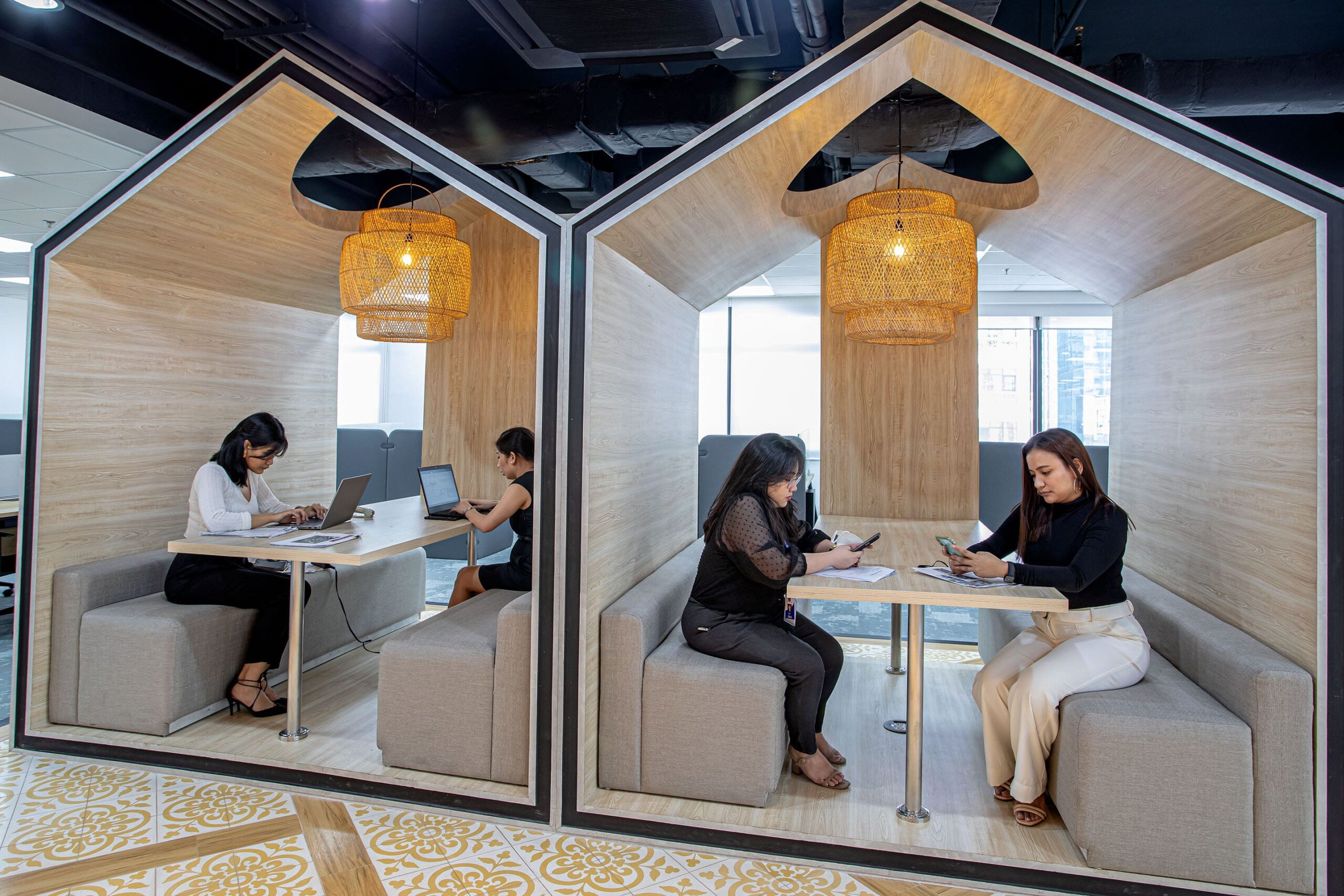
Ensuring that employees’ needs are addressed, the company continues to develop programs for their upskilling and career development. More than 1,000 JG Summit employees have access to about 16,000 courses, content, and live sessions as part of the JG Summit Executive Development Program.
Apart from providing employees with opportunities to improve their standard of living and fulfill their potential, the conglomerate remains steadfast in protecting its employees’ overall well-being. In 2021, JG Summit attained a 99% vaccination rate among its workforce, including third-party workers. Its telehealth services have also been successful, having provided 16,430 employee consultations since its inception.
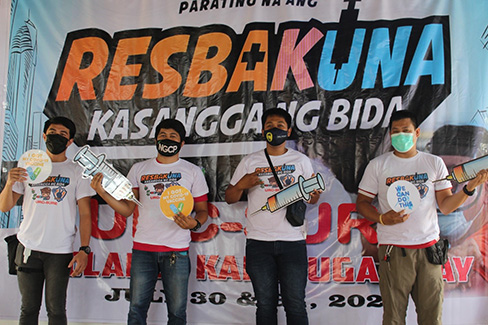
Shared Success
For JG Summit, ensuring an equitable flow of economic value to its key stakeholders is what the Shared Success focus area is all about. The conglomerate’s goal is to grow not only its businesses but also create value for its stakeholders.
Among these stories of shared success is URC’s partnership with local farmers. In 2021, URC donated 133.8 tons of Granola potato seeds to around 700 farmer beneficiaries in Bukidnon, Davao del Sur, and the Cordillera Administrative Region. This initiative not only helped each farmer earn an average net income of Php 135,000 per planting cycle, it also helped them become more self-sufficient.
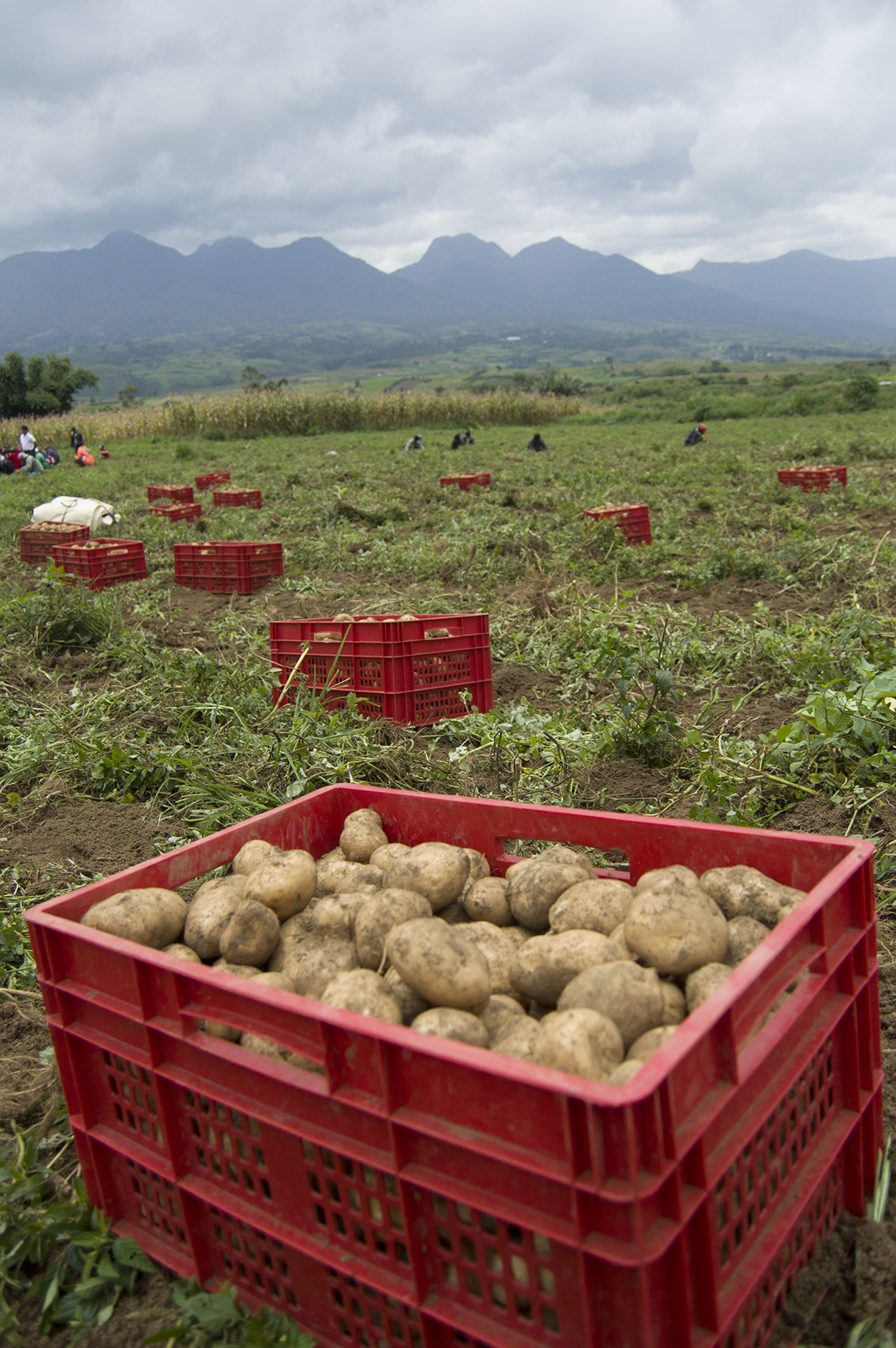
Through its RBankMo, which uses the agency banking or “branchless banking” operations model, customers can open an account, withdraw cash using any BancNet ATM card, deposit money into an RBank savings account and even pay their bills — all without venturing far from their homes.
This was made possible by partnering with Premiumbikes Corporation (PBC), the country’s leading motorcycle dealerships, with its more than 100 branches becoming RBankMo outlets. By the end of 2021, 1,980 new bank accounts were opened, resulting to an average of Php 65,000 in daily transactions at each PBC store, and approximately Php 6 million in total transacted value.
Better Choices
Providing Better Choices as a focus area is the conglomerate’s way to sustain the consistent delivery of quality products and services across its businesses. Being highly diversified, JG Summit takes pride in its mission to provide customers with better choices across a wide range of industries.
Today consumers can enjoy these better choices in the form of healthier options from URC through improved nutritional quality of its product portfolio. This includes a shift to non-PHO (partially hydrogenated oils) formulations for some of its snack and candy brands, such as Nips, Wiggles, Chooey Toffee, Cloud 9, and Wafrets. URC targets to eliminate the use of PHOs by 2022.
Meanwhile, more affordable yet eco-friendly flights at Cebu Pacific have been launched such as the CEB Super Pass (CSP) which is the airline’s innovative and insightful response to the air travel challenges brought about by the pandemic. With CSP, customers can buy all the travel passes they can and fly when they can within one year to domestic destinations in CEB’s widest Philippine network at a competitive price of Php 99 one-way base fare per pass.
In addition, RLC is providing its tenants with greener choices when it comes to their office spaces by continuing to innovate its designs and integrating sustainability in it. For instance, Giga Tower, RLC’s newest office building, is a LEED (Leadership in Energy and Environmental Design) Gold-certified for Building Design and Construction and meets world-class standards in terms of design, construction, and operational efficiency by consuming 9.5% less electricity compared to the same design with standard features.

Despite the disruption of the pandemic, JG Summit continues to seek opportunities to keep its sustainability journey on course. “Amid the challenges, the conglomerate will continue to deliver shared business success and a positive impact on society and the environment, not just in the present, but for the years to come,” Gokongwei concludes.
To learn more about the JGS Sustainability Agenda, visit https://www.jgsummit.com.ph/annualreport2021/how-to-win/sustainability








